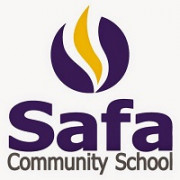The Early Years Foundation Stage (EYFS) Framework, sets out the standards for development, learning and care of children from birth to five. It is important that all children are given the opportunity to experience the best possible start to their education.
We need to ensure that our children enter school having established solid foundations on which they can build. Children will start in our Foundation Stage having had a range of different experiences. Within the FS1 and FS2, learning experiences of the highest quality are planned, considering children’s needs and achievements and the range of learning experiences that will help them make progress. Well-planned play is a key way in which children learn with enjoyment and challenge, both within the indoor and outdoor learning environments. The Foundation Stage prepares children for learning in Key Stage 1 and is consistent with the National Curriculum.
In the Foundation Stage, the curriculum is planned and resourced to take children’s learning forward and to provide opportunities for all children to succeed in an atmosphere of care and of feeling valued.
The curriculum for the Foundation Stage is designed to ignite children’s curiosity and enthusiasm for learning and to build their capacity to learn, form relationships and thrive. The curriculum is planned in seven areas of learning and development; all areas are important and inter-connected.
KEY STAGE 1 AND 2
Key Stage 1 is the legal term for the two years of schooling in maintained schools in England and Wales normally known as Year 1 and Year 2, when pupils are aged between 5 and 7. This Key Stage normally covers pupils during infant school, although in some cases this might form part of a first or primary school.
Key Stage 2 is the legal term for the four years of schooling in maintained schools in England and Wales normally known as Year 3, Year 4, Year 5 and Year 6, when pupils are aged between 7 and 11.
To help your child become an able, confident and inspired learner, our curriculum approaches learning with a clear progression in skill development. Your child will consider topics from multiple perspectives and make meaningful connections between what he or she learns in the subjects studied.
SECONDARY CURRICULUM
Our curriculum is based on a solid academic foundation, but has many added aspects aimed at enhancing the all-round preparation of all our students for success in the next phase of their studies; university and careers.
The curriculum of the school is organised so that students are stimulated, encouraged and challenged to develop their individual potential and personality to the full. Through effective planning and excellent teaching by highly qualified and enthusiastic subject specialist teachers, pupils are helped to:
- Gain a joy and commitment to learning that will last a lifetime.
- Develop the essential 21st Century skills they will need for future success.
- Develop the attitudes, understanding and skills to become highly competent independent learners.
- Foster their creativity and develop lively, enquiring minds.
- Develop personal values, qualities and attitudes and be respectful of other people and the views and opinions of all citizens in our global world.
- Develop an appreciation and concern for the environment.
- Work co-operatively with others.
- Achieve beyond their potential – to outperform!
Our schemes of work are based on the National Curriculum of England, delivered in English and adapted to take into account our international context and local circumstances.
Being a Dubai school, Arabic is an important language for our students to learn and Islamic Studies is delivered to our Muslim students.
Both Arabic and Islamic Studies courses are structured based on Ministry of Education curriculum and is also segregated into Arabic A for Arabs, Arabic B for non Arabs, Islamic Studies A for Arab muslim students and Islamic Studies B for non Arab muslim students.
We aim to put the students at the centre of their own learning and place great emphasis on nurturing skills and attitudes such as resourcefulness, resilience, teamwork, confidence, communication, motivation, personal effectiveness, creative thinking and problem solving . . . the so called soft skills.


 Al Barsha South
Al Barsha South
 Al Barsha South
Al Barsha South

